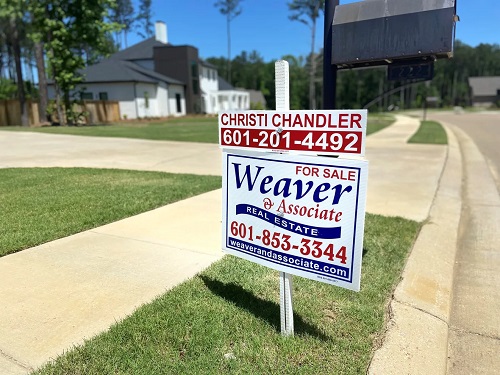5.1.22 Clarion Ledger
Homebuyers in Central Mississippi shouldn’t be too terribly concerned about the rise in mortgage interest rates.
At least, that is the word that realtors and mortgage bankers are putting out.
As of April 25, the rate on a traditional 30-year mortgage jumped to 5.3% from a recent low of 3.5%.
“In the last 65 days, mortgage interest rates have risen from 3.5% to 5%,” said Madison realtor Amanda Polles. “In my career, I have never seen interest rates rise so drastically in that short of an amount of time.”

For perspective, a home you could have bought for $300,000 at a 5% rate had the same payment as a house bought for $500,000 at 3%.
Nationally, Deutsche Bank has some people worried after forecasting a deep recession in the past week as interest rates are rising across the board.
However, Matt Wilson, President of the Mississippi Mortgage Bankers Association, believes the housing market’s current state is not something about which to be alarmed.
“Mortgage rates are up, and they went up a little quicker than we all thought they would,” he said. “But we have been thinking this rate increase was coming for the last five or six years. Rates were never supposed to stay as low as they did for as long as they did. And even the 5% to 6% interest rates are considered low-interest rates historically.”

The rise in interest rates compared to inflation increases makes many national onlookers believe consumers are still better off.
“Sophisticated buyers won’t be much worried about mortgage rates just over 5%, and much lower than that after-tax, when inflation is much higher, and homes are still appreciating so fast, in part because so few are for sale,” said Ed Pinto, director of the American Enterprise Institute’s Housing Center told Forbes in a recent interview.
Bob Broeksmit, president/CEO of the national Mortgage Bankers Association, spoke to a regional conference of mortgage bankers last week in Memphis and said his organization is not predicting any recession at this time.
What appears to be the biggest challenge facing Mississippi homeowners, especially in Central Mississippi, is an inventory shortage.
“That is a huge challenge, and I believe that as the supply chain gets back in order, I think we will see more inventory hitting on the market,” Wilson said. “Another big issue that is facing our industry is affordable housing. Materials have skyrocketed for building homes.”
Polles said the entire situation had been a long time coming as different forces have put people in different situations.
“Last year, people were stirring. People, for different reasons, wanted to move. They were tired of looking at the corners of their house in 2020, and they decided to renovate and re-do or just move,” she said. “Interest rates were low. Everything was affordable.
“It bottlenecked for these buyers that wanted to move. All of a sudden, it created this frenzy. You just had so many people looking for the same thing. Then those sellers started looking. It created this uptick in prices and demand.”
The supply became low, and that is what drove prices up.
“People would have loved to have built a house, but as the uptick in materials hit, so did prices of new construction,” Polles said. “So, we saw the mid-$160s a foot go to $170s a foot. Now we are in the mid-$180s a foot, and I just saw one in the $190s a foot.”
Wilson says he doesn’t see any specific relief in the near future. Some experts have suggested that modular homes could come into vogue in the meantime.
“I think the market is going to be tough for the next 12-18 months,” he said. “The inventory shortage is not going to get better overnight. It’s going to be tough finding people homes.”
And despite the jump in prices for new construction homes, neither Polles nor Wilson see any indication, at least in Central Mississippi, of sales decreasing.
“All of my new construction houses are moving,” Polles said. “I do think you will see prices stabilize, though. I think you are going to see buyers do a couple of things. I think you are going to see them look for lesser prices of homes that they can now afford. I also think you will see buyers wait this thing out.”
She said when she first started in the business, rates were around 6% to 8%, which was a great interest rate. But people have gotten used to the cheap money of 2.5%. Having said that, Polles believes, “you can expect things to even out at about 6%-ish by the end of the year.”
Wilson said 6% does not mean there is a recession on the way.
“Everybody is saying this is an ’08-’09 situation when there was such a deep recession and economic downturn, and it’s just not. Nothing could be further from the truth,” Wilson said.
“Banks are lending money. Financial companies are lending money. We want to get people into houses,” he said. “We have qualified clients who can buy houses. There just aren’t enough houses for everyone to buy. Back in ’08-’09, we couldn’t put people in houses because we couldn’t lend the money to them. That’s not the case here. We want to lend the money to people. I think that is the story.”
